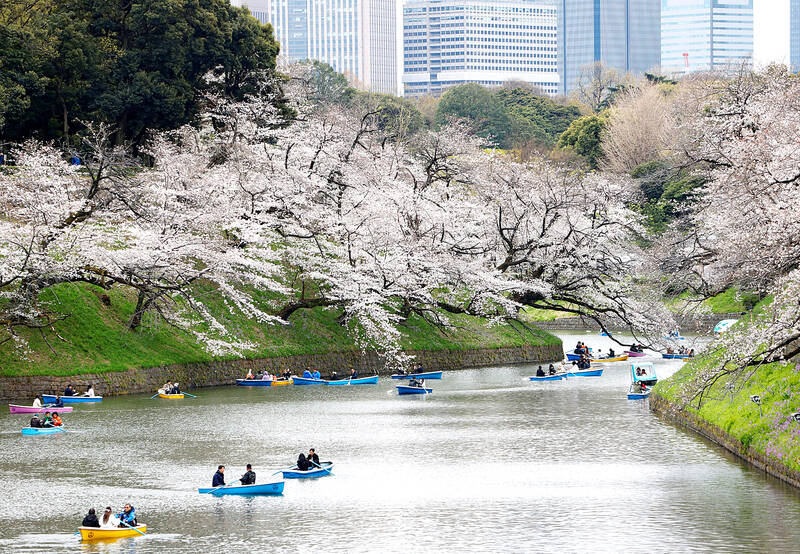Name: The perfect day.
Apearance: Data driven.
The perfect day? Huh. Good luck with that. You seem down — is your day going badly?

Photo: Reuters
Honestly, it’s a mixed bag. The world is sliding into geopolitical chaos and climate collapse while Jeff Bezos sends Katy Perry into space, but on the plus side, I’ve just made a great sandwich. Would you like to know how to make it better?
My sandwich? Impossible. No, your day.
Let me guess. Is it generational wealth? No, there’s a new formula for how to have a good day.
A formula — what is this, GCSE chemistry? It’s social science, actually. Researchers at the University of British Columbia have used machine-learning techniques to analyze data from the American Time Use Survey and work out how the amount of time people devoted to various activities determined whether they rated their day as “better than typical.”
I see. So what’s the formula? Well, there’s six hours of family time and two hours with friends, plus an hour and a half of extra socializing, for a start.
Exhausting. Do introverts not contribute to the American Time Use Survey? Some of them seem to: one of the findings was that, while socializing was an important part of a better than average day, there was little benefit beyond two hours of it.
That makes sense — there’s a limit to how long I want to spend talking with Dave next door about the bins. “Some activities may be best in small doses, like a touch of salt when baking cookies,” the research team theorized. “While other activities may be akin to chocolate chips, where more is almost always better.”
Very true. What else should I be doing? Well, speaking of chocolate chips, there’s an hour of eating and drinking in there.
Easy. Anything else? Two hours of exercise.
Twice as much time exercising as eating and drinking? Madness. Data doesn’t lie. Better than average days involved work, too, though not more than six hours of it.
Yes, six hours of work is plenty. I need time for zoning out watching TikToks of medieval dog names and murderous emus. Sorry, no — you should only be having an hour of screen time.
So how am I supposed to relax? Well, here’s the strangest finding from this research: “Time spent relaxing was always negatively associated with having a good day.”
What? Strange, isn’t it? The research team think it’s because most of that time is spent watching TV.
In the age of prestige streaming? Unlikely. It’s probably because these days, we need lives stuffed with work, exercise and other people to distract ourselves from impending doom. Sssh, eat your sandwich.
Do say: “Such a perfect day, drink sangria in the park.”
Don’t say: “For a period not exceeding one hour, followed by a two-hour high-intensity interval training workout.”

Exceptions to the rule are sometimes revealing. For a brief few years, there was an emerging ideological split between the Democratic Progressive Party (DPP) and Chinese Nationalist Party (KMT) that appeared to be pushing the DPP in a direction that would be considered more liberal, and the KMT more conservative. In the previous column, “The KMT-DPP’s bureaucrat-led developmental state” (Dec. 11, page 12), we examined how Taiwan’s democratic system developed, and how both the two main parties largely accepted a similar consensus on how Taiwan should be run domestically and did not split along the left-right lines more familiar in

As I finally slid into the warm embrace of the hot, clifftop pool, it was a serene moment of reflection. The sound of the river reflected off the cave walls, the white of our camping lights reflected off the dark, shimmering surface of the water, and I reflected on how fortunate I was to be here. After all, the beautiful walk through narrow canyons that had brought us here had been inaccessible for five years — and will be again soon. The day had started at the Huisun Forest Area (惠蓀林場), at the end of Nantou County Route 80, north and east

This month the government ordered a one-year block of Xiaohongshu (小紅書) or Rednote, a Chinese social media platform with more than 3 million users in Taiwan. The government pointed to widespread fraud activity on the platform, along with cybersecurity failures. Officials said that they had reached out to the company and asked it to change. However, they received no response. The pro-China parties, the Chinese Nationalist Party (KMT) and Taiwan People’s Party (TPP), immediately swung into action, denouncing the ban as an attack on free speech. This “free speech” claim was then echoed by the People’s Republic of China (PRC),

Specialty sandwiches loaded with the contents of an entire charcuterie board, overflowing with sauces, creams and all manner of creative add-ons, is perhaps one of the biggest global food trends of this year. From London to New York, lines form down the block for mortadella, burrata, pistachio and more stuffed between slices of fresh sourdough, rye or focaccia. To try the trend in Taipei, Munchies Mafia is for sure the spot — could this be the best sandwich in town? Carlos from Spain and Sergio from Mexico opened this spot just seven months ago. The two met working in the